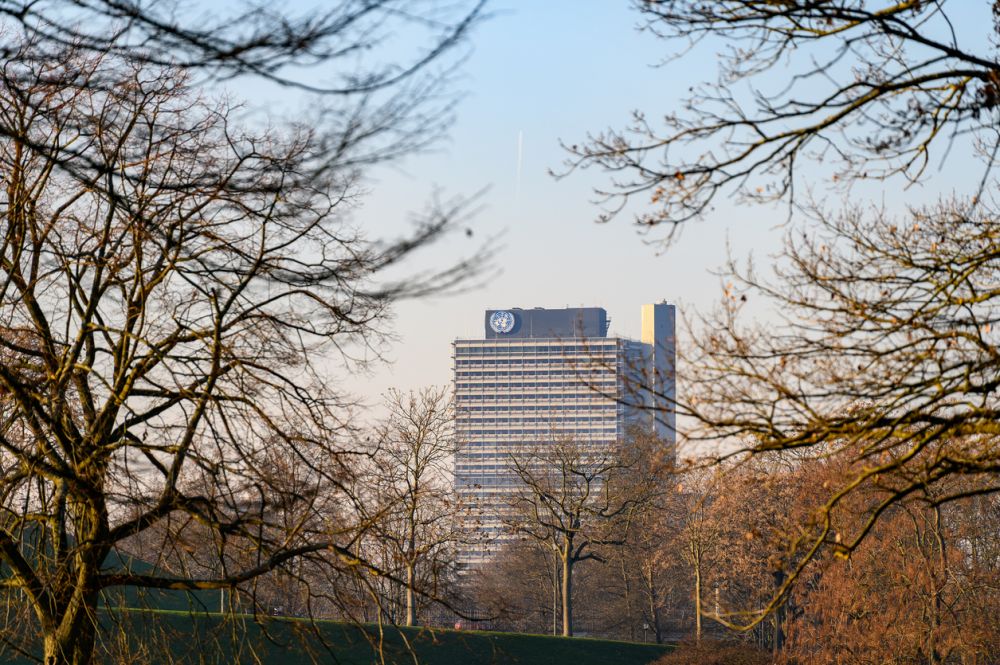Majority of Countries Miss Deadline for Updated NDCs
Parties are required to submit updated national climate plans every five years to the United Nations Framework Convention on Climate Change (UNFCCC) secretariat under the Paris Agreement. However, the majority missed yesterday’s deadline, including key top emitters.

Last week UN Climate Change Executive Secretary Simon Stiell provided an update on the state-of-play on global climate action, in this 10th year since the Paris Agreement at the Instituto Rio Branco in Brasília – Brazil's diplomatic academy. He emphasised the “colossal scale of economic opportunity” the clean energy shift presents and the need to enable all nations to benefit from this potential.
The speech was delivered ahead of yesterday’s deadline for countries to submit their updated NDCs under the Paris Agreement. Stiell highlighted, “These national plans are among the most important policy documents governments will produce this century.”
According to the UN Environment Programme’s (UNEP) 2024 Emissions Gap Report, failure to increase ambition in the updated Nationally Determined Contributions (NDCs) and start delivering immediately would put the world on course for a temperature increase of 2.6-3.1°C over the course of this century.
Driving climate action through NDCs
Ten years ago, 196 Parties adopted the Paris Agreement in a landmark moment for global climate action at COP21.
At the heart of the agreement are the NDCs, through which each Party is required to communicate its emissions reduction targets and plans to adapt to climate change every five years from 2020 onward. These updated plans must reflect ‘the highest possible ambition’ and are to be informed by the first Global Stocktake.
Yesterday, all Parties were required to submit their updated NDCs (NDCs 3.0) including targets for 2035, yet just 13 countries met this UN deadline. .
Most of the world’s top emitters are missing, with the exception of Brazil and the UAE - two parts COP Presidencies Troika - who published their climate plans during COP29.
The USA submitted its NDC 3.0 in December 2024, prior to President Trump taking office, however, have since exited the Paris Agreement. This has also caused ripple effects as concerns grow that Argentina’s President Javier Milei wants to walk away following the country’s negotiators drop out at COP29.
The Republic of the Marshall Islands is leading the way for small island developing states (SIDS) with a target to reduce emissions by at least 58% reduction in greenhouse gas emissions below 2010 levels by 2035. Adaptation is also a strong focus given the enormous threat climate change poses to the island state. Scaling up climate finance will be vital to enabling SIDS to meet these targets and, crucially, implement adaptation plans.
Countries must submit their plans by September at the latest to ensure they are included in the NDC Synthesis Report to be released ahead of Brazil’s COP30.
Analysis from Climate Action Tracker - an independent scientific project that tracks government climate action and measures it against the globally agreed Paris Agreement -finds that none of the updated NDCs currently submitted align with a 1.5°C trajectory.
Given their critical role for setting the global level of ambition for emissions reductions, UN Climate Change Executive Secretary Simon Stiell emphasised, “taking a bit more time to ensure these plans are ‘first-rate’ makes sense.”
The Road to COP30
Strong NDCs give clear signals to markets and empower non-state actors - such as businesses, industry leaders, NGOs, and civil society - to actively contribute to achieving national climate commitments, transforming ambitious targets into tangible outcomes. At the same time, governments must put in place the right conditions to ensure the plans are implementable.
As we progress through 2025, a pivotal year for action, Climate Action will amplify the ability of non-state actors in implementing national climate plans, support collaboration between the public and private sector, and push forward innovative solutions at a series of touchpoints across the climate calendar, ensuring that efforts align to accelerate meaningful impact.
Finance was a central focus at COP29 and Biodiversity COP16, where Parties underscored the substantial funding gap for climate mitigation, adaptation, and combating biodiversity loss. Harnessing private sector investment through innovative mechanisms and de-risking strategies will be essential to closing this gap and driving impactful solutions for both climate and nature preservation and restoration.
Stakeholders from within the sustainable finance ecosystem, including investors, policymakers, and innovators, will convene in Paris on 28 and 29 April at the inaugural Nature Finance Forum (NFF-EU), alongside the Sustainable Investment Forum (SINV-EU), which is running for the ninth year in partnership with UNEP-FI.
During SINV-EU, Didier Millerot, Head of the Sustainable Finance Unit at the European Commission will discuss the role of NDCs 3.0 in enhancing ambition and implementation in conversation with Olga Hancock, Head of Responsible Investment at Church Commissioners for England; Jan Kaeraa Ramussen, Head of ESG & Sustainability at PensionDanmark; and Emily Murrell, Policy Director at the Institutional Investors Group on Climate Change (IIGCC).
On June 25, the Climate Innovation Forum will return as a flagship event of London Climate Action Week, a focal point in the lead up to COP30. This year, the Forum will feature the highly anticipated unveiling of the UK’s Climate Change Committee’s 2025 Net Zero Progress Report. This assessment will reveal how the UK is progressing toward its NDC targets, identifying priority actions and setting the tone for the next phase of climate action.
For more information:
Agenda | Sustainable Investment Forum Europe 2025


_(1)_400_250_s_c1.png)



